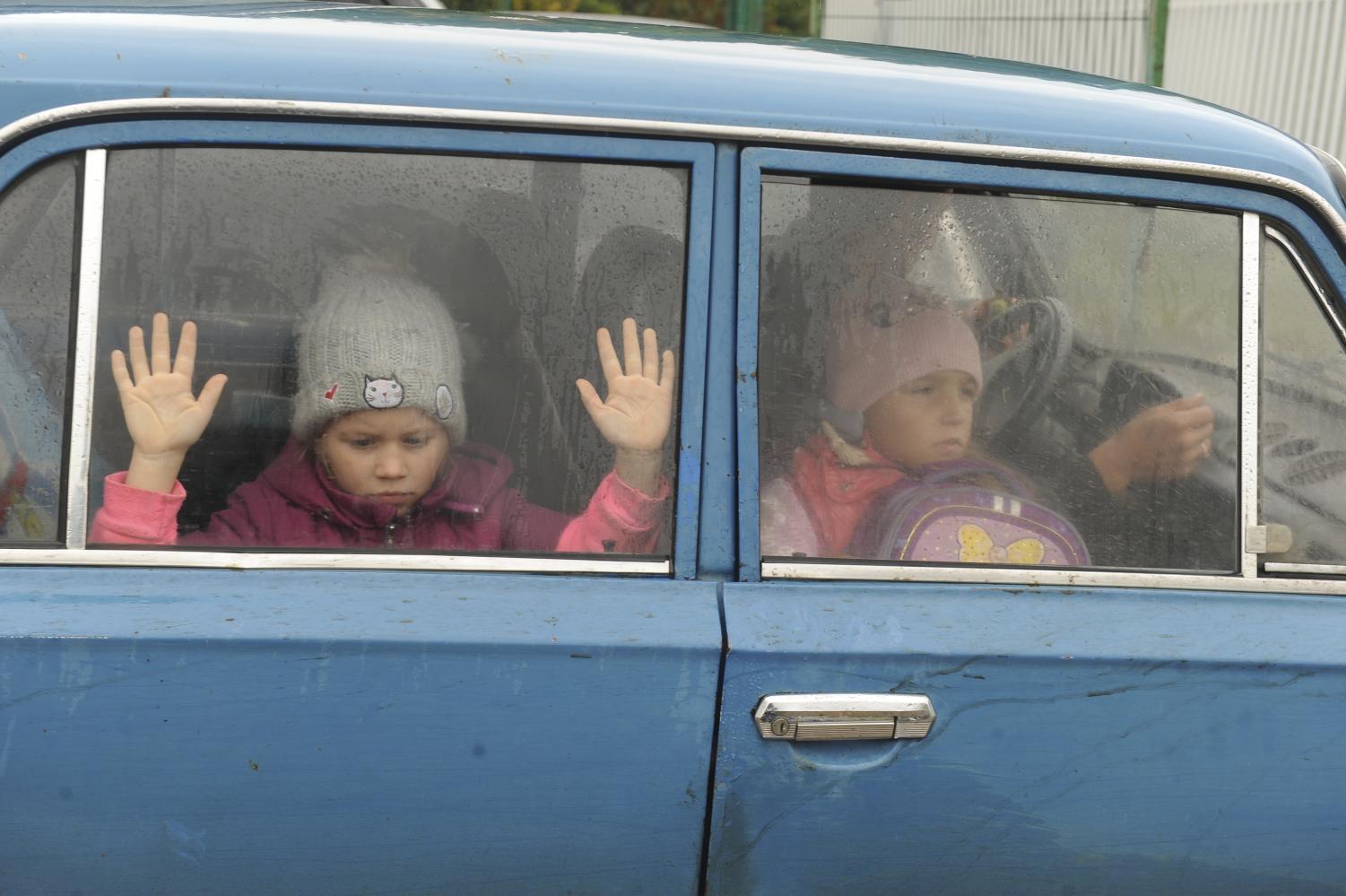Editorial | Russia, leave Ukrainian civilians out of war


Children look through car windows as they and other refugees from the Kharkov Region of Ukraine arrive at a temporary camp in Belgorod, Russia, on Wednesday. Thousands fled northeastern Ukraine to Russia amid the Ukrainian counteroffensive in the region.
As Ukraine suffers “major setbacks” on the battlefield, there are increasing concerns that Russia is targeting civilians.
The Wall Street Journal reported over the weekend that the U.K.’s Ministry of Defense found that Russian strikes have “increasingly picked out civilian targets over the past week, even when no immediate military benefit could be perceived.” More than 14,000 Ukrainian civilians have been killed or injured due to the Russian invasion, which began in February.
Although the Russian offensive already previously targeted residential areas, including neighborhoods, shopping malls and even hospitals, it’s important to reiterate that involving innocent civilians in the wages of war is wholly unethical and inhumane.
After extended wartime during the 19th and 20th centuries and the codification of the law of armed conflict, civilian safety emerged as a general concern in the international relations community. This, along with the Geneva Convention after the end of World War II, made it possible to begin to define war crimes — despite it being a very tricky endeavor that has not yet gained an international consensus. As a result, the Rome Statute of the International Criminal Court outlines that an attack directed at any civilian population is a war crime, along with other humanitarian concerns.
The costs of war, regardless of whether civilians are involved, is immense and not a reality most of us can comprehend. But when civilians are roped into the tragedies of war, the scale of damage is much greater than anything we can imagine. Obviously involving civilians in violence will yield dire results, but even indirect violence against civilians has devastating consequences. Indirect violence is defined as the harm caused to civilians due to the indirect consequences of war, such as decreased access to food, clean water or health care. So even when fighting seemingly does not affect civilians, it still contributes to worsening quality of life. For example, 2.1 million civilian deaths occurred after the formal end of the war in the Democratic Republic of the Congo. These problems arose due to the collapse in healthcare systems and food shortages, which is similar to problems Ukrainian civilians are currently facing.
Although it’s unlikely that civilians will ever be completely left out and unaffected by war, the international community has a responsibility to lessen its impact by putting in place harm reduction strategies that protect civilians’ health and safety.
Recent Posts
Review | Delayed checkouts at ‘The White Lotus’: An unoriginal third season
(Contains Spoilers) There is no meditation class, no reiki session, no nutritionally balanced, organic food…
Celebrating Women’s History Month with the HerStory Slam Event
Idaya Sasikumar, a first-year psychology student, took to the stage to read her personal story.…
Review | Michael Franti & Spearhead reflect on the power of love in new album ‘Welcome to the Family’
Nothing says “Welcome to the family!” like a new baby. Soul-rock band Michael Franti &…
How hurling put me on ESPN and in a National Championship game
Nothing is more difficult than joining a new club in college. It is terrifying when…
Column | It’s now or never for Henry Davis
When Henry Davis came into Monday night’s game against the Washington Nationals at PNC Park,…
Pitt men’s basketball navigating transfer portal difficulties
Pitt men’s basketball is like any other team in the world of large NIL deals…

